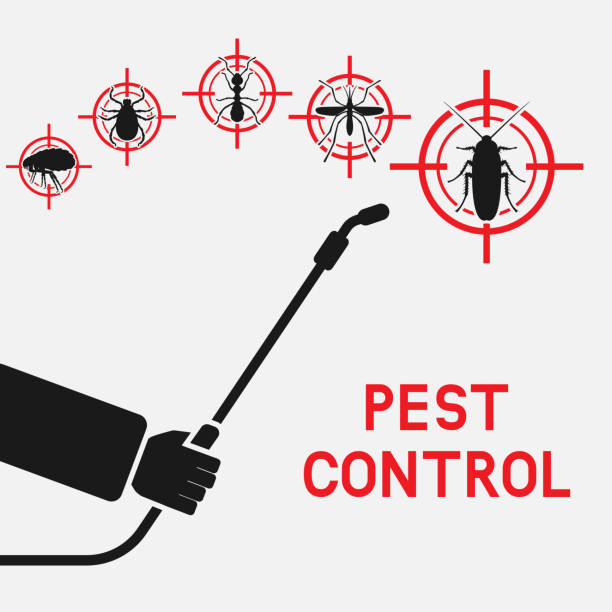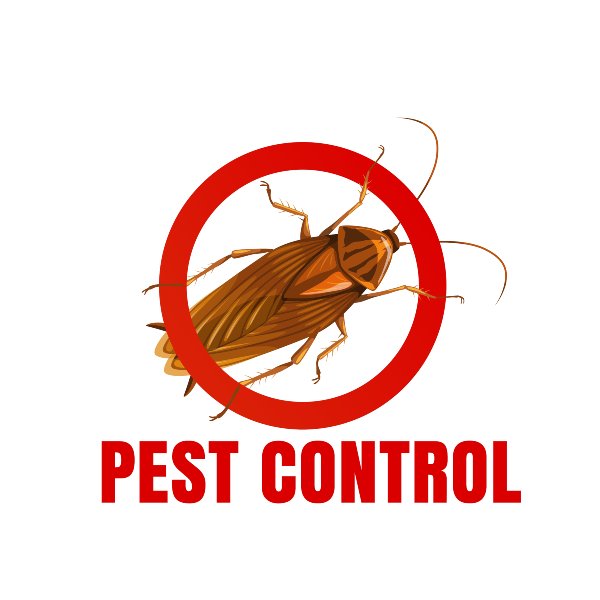Powerful Termite Treatment Port Charlotte to Safeguard Your House
Powerful Termite Treatment Port Charlotte to Safeguard Your House
Blog Article
Discover the Value of Insect Control in Preserving a Healthy And Balanced Setting and Treatment Methods

The Function of Pests in Environments
Parasites, usually viewed entirely as annoyances, play a complex function in ecological communities that is important for keeping ecological equilibrium. They add dramatically to various ecological procedures, including pollination, nutrient cycling, and bug control. For example, many insect varieties, such as butterflies and bees, are necessary pollinators for a wide variety of plants, which consequently supports biodiversity and food production.
Furthermore, bugs function as prey for various predators, producing an essential web link in food internet. This interdependence ensures the survival of numerous species and assists manage populations within environments (Termite treatment Port Charlotte). Decomposer parasites, such as certain beetles and fungi, are crucial in damaging down natural matter, thus improving soil and facilitating nutrient recycling.
Conversely, while bugs can be advantageous, their overpopulation or invasion into non-native settings may interrupt these ecological functions. This intricacy underscores the significance of recognizing pest characteristics, as reliable parasite administration methods must take into consideration both their environmental roles and prospective effects on human activities. Balancing pest existence while decreasing harm is crucial for preserving the integrity of ecosystems and ensuring agricultural performance.
Wellness Threats Associated With Insects
The visibility of insects in various settings prolongs past their ecological functions, as they likewise pose substantial health and wellness threats to pets and people. Numerous pests, consisting of bloodsuckers, rodents, and pests, are providers of diseases that can have major wellness ramifications. Rats are known to transfer hantavirus and leptospirosis, both of which can lead to severe breathing and kidney concerns, respectively.
Bugs such as mosquitoes and ticks are well known for spreading out vector-borne conditions like jungle fever, dengue fever, and Lyme illness. These illnesses can cause high morbidity and mortality prices, specifically in vulnerable populations. Furthermore, parasites like roaches and vermins can worsen allergic reactions and bronchial asthma, adding to breathing issues in individuals, particularly those with pre-existing problems.
In addition, the presence of pests can result in mental anxiety and pain, affecting general health. Contamination of food and surface areas by pest droppings and remains can lead to foodborne diseases, highlighting the significance of preserving sanitary conditions. Consequently, recognizing the health risks related to pests is essential in acknowledging the requirement of efficient insect management techniques to protect animal and human health and wellness.

Benefits of Efficient Bug Control
Reliable parasite control is essential for keeping a safe and healthy and balanced atmosphere, as it regularly mitigates the numerous threats connected with insect infestations. One of the key advantages of effective pest monitoring is the reduction of health threats.
In addition, efficient pest control safeguards residential or commercial property and structures from damages. Numerous pests, like termites and woodworker ants, can trigger comprehensive structural damages that may require costly fixings. By proactively handling these property owners, infestations and organizations can safeguard their financial investments.
An additional significant advantage is the improvement of general quality of life. A pest-free atmosphere adds to psychological wellness and lowers anxiety related to infestations. Reliable bug control cultivates a more secure setting for animals and children, guaranteeing that homes stay shelters cost-free from disease-causing organisms and damaging chemicals.
Usual Parasite Control Techniques

In the world of insect monitoring, numerous techniques are used to deal with infestations properly. These strategies can be broadly classified into 3 major methods: cultural, mechanical, and chemical controls.
Cultural control involves customizing practices to minimize pest survival, recreation, and establishment. This might include plant rotation, correct sanitation, and environment manipulation, which jointly create a setting less helpful to pest proliferation.
Mechanical control uses physical approaches to eliminate insects (Termite treatment Port Charlotte). Strategies such as obstacles, vacuums, and traps are generally used to directly remove insects from an area. This method is especially efficient for taking care of rats and pests without the usage of harmful chemicals
Chemical control involves the application of chemicals to manage pests. These compounds can be categorized into fungicides, herbicides, and pesticides, each targeting specific kinds of parasites. It is important to utilize these chemicals carefully, sticking to safety and security standards and weblink laws to minimize prospective injury to non-target types and the atmosphere.
Each insect control technique has its restrictions and advantages, and typically, an integrated method integrating multiple methods generates the ideal lead to maintaining a pest-free environment.
Lasting Parasite Monitoring Practices
Lasting bug management techniques incorporate a series of techniques designed to minimize ecological effect while efficiently controlling parasite populations. These methods prioritize the usage of ecologically friendly techniques over chemical pesticides, consequently decreasing the threat of damage to non-target species, including useful bugs, wildlife, and human beings.
Integrated Insect Monitoring (IPM) is a foundation of lasting practices, incorporating biological, social, mechanical, and chemical strategies to take care of insects. Organic control entails introducing natural predators or parasites to subdue parasite populaces. Cultural methods, such as crop rotation and polyculture, interrupt pest life process and enhance community strength.
Mechanical methods, such as obstacles or traps, can successfully protect against pest gain access to without chemical treatment. Furthermore, keeping healthy and balanced communities with correct dirt monitoring, plant health, and biodiversity can normally mitigate insect problems.
Education and understanding are essential parts, encouraging people and communities to recognize insect risks early and execute preventative actions. Termite treatment Port Charlotte. By cultivating an all natural strategy that stabilizes parasite control with eco-friendly honesty, lasting pest management practices not just shield frameworks and crops but also add to a much healthier environment for future generations
Verdict

Comprehending the health threats connected with insects is crucial in identifying the requirement of effective bug management strategies to secure human and animal health.
Reliable insect control is crucial for preserving a risk-free and healthy and balanced atmosphere, as it consistently alleviates the numerous threats associated with parasite infestations.Integrated Bug Management (IPM) is a foundation of sustainable methods, incorporating biological, social, mechanical, and chemical strategies to take care of pests. By recognizing the role of insects, recognizing connected health dangers, and using diverse therapy techniques, a lasting method to pest management can be accomplished. Integrated Pest Monitoring (IPM) stresses an all natural approach that alleviates injury to useful microorganisms while effectively managing bug populaces.
Report this page